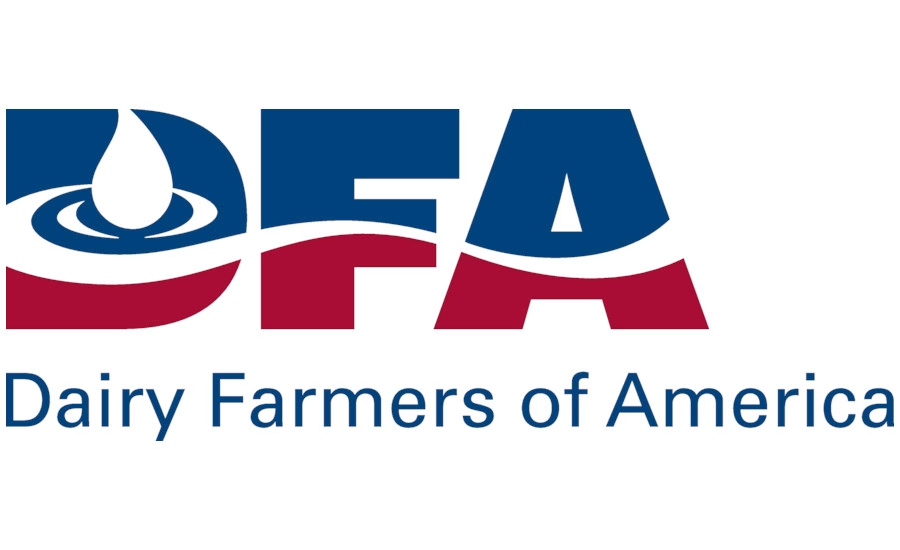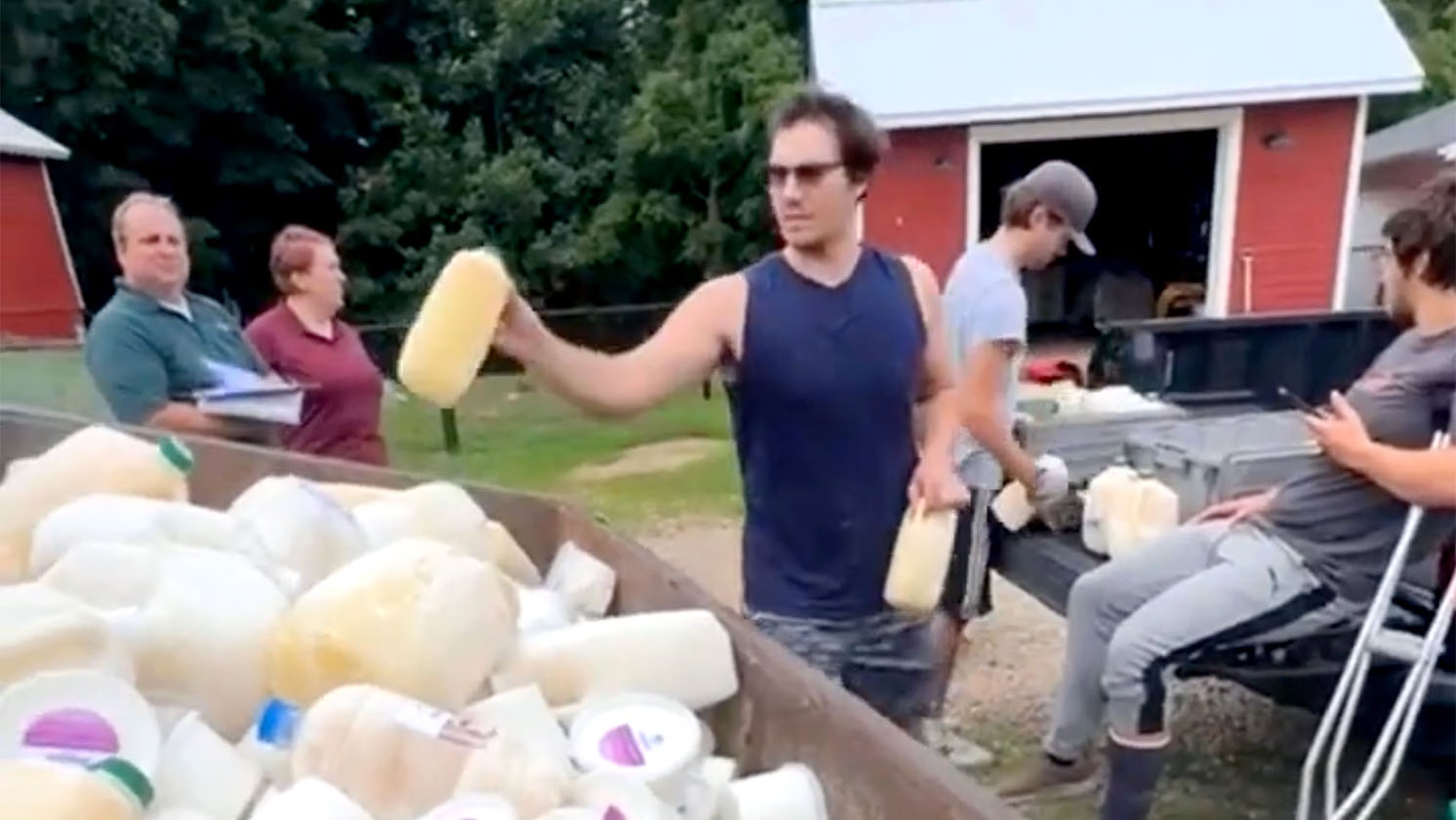Dairy Farmers of America to close Pollock facility, impacting 37 jobs. How will this affect the local dairy industry and community? Read more to find out.

In a significant move, Dairy Farmers of America (DFA) will shut its dairy ingredient factory in Pollock, South Dakota, displacing 33 full-time and four part-time employees. This choice, related to more significant industry trends such as market consolidation and issues such as fluctuating milk prices, was made after thoroughly considering new demand and supply dynamics. DFA, a significant farmer-owned dairy cooperative, hopes to assist impacted workers throughout this changeover.
This decision followed a thorough analysis of the changing demand and current supply landscape. It’s part of a larger, coordinated milk marketing and balancing optimization project across the cooperative. Dairy Farmers of America emphasized the necessity of maintaining financially robust operations that enhance the returns on their family farm-owners’ investments. The raw milk previously handled at the Pollock facility will be redirected to nearby production sites, ensuring customers continue receiving uninterrupted service. Industry trends and shifts in the supply chain likely played a role in this decision.
Despite the shutdown of the Pollock factory, Dairy Farmers of America is dedicated to helping impacted workers. The decision to shut the factory was not made lightly, and the firm values the Pollock team’s devotion and hard work. The firm will collaborate with the workers to assist them throughout this transition, ensuring they are not left unattended.
The shutdown of the Pollock factory will substantially affect Dairy Farmers of America, the surrounding community, and other dairy processing operations. It’s a difficult decision, but the corporation emphasizes making financially responsible decisions for its family farm owners.
The Pollock facility’s shutdown is a significant transition for Dairy Farmers of America, with implications for the local community and other dairy processing operations. It’s a difficult decision, but the corporation emphasizes making financially responsible decisions for its family farm owners.
The closing of the Pollock factory will substantially impact its workers, with 33 full-time and four part-time roles being eliminated. Dairy Farmers of America values and recognizes its Pollock team’s devotion and hard work. The firm is dedicated to assisting these workers throughout this transition.
Dairy Farmers of America (DFA) is a central national farmer-owned cooperative representing over 11,000 family farm owners. DFA provides high-quality dairy products to customers, including fluid milk, cheese, butter, ice cream, and other components. Their popular brands include Alta Dena Dairy, Meadow Gold Dairy, Friendly’s, Borden Cheese, Plugrá Premium Butter, and Kemps.
South Dakota’s dairy business is thriving, with nine more processing units highlighting its significance. Despite the shutdown of the Pollock plant, the state’s dairy output has increased significantly due to development and investment. This resiliency guarantees that South Dakota has a crucial role in dairy production.
The regional effect goes beyond Pollock in light of the Dairy Farmers of America’s ruling. Pollock’s closure is around 90 miles from Bismarck, North Dakota, and coincides with the September 2023 closure of Prairie Farms in Bismarck. Due to this transfer, Cass-Clay Creamery in Fargo, North Dakota, Associated Milk Producers Inc. in Hoven, South Dakota, and Bongards in Perham, Minnesota, were left to absorb excess milk. Bongards are growing to accommodate the additional traffic. This redistribution guarantees that Pollock’s raw milk finds a home while maintaining network stability.
Dairy Farmers of America shut the Pollock plant after strategically reviewing new demand and existing supply dynamics. This move is part of a more significant endeavor, the Milk Marketing and Balancing Optimization Project. The organization aspires to establish financial stability and efficiency by simplifying operations and providing higher returns to its family farm owners. Despite the shutdown, Dairy Farmers of America ensures that the raw milk now processed at Pollock will be routed to adjacent production plants, assuring continued customer service via their extensive network.
Dairy Farmers of America runs 46 factories around the US, specializing in a broad range of dairy products. There are 13 plants in the “Central Area,” which stretches from the Dakotas to Wisconsin and from the Canadian border to Oklahoma. The Pollock factory, one of seven component factories in the area, is scheduled to shut, highlighting the network’s significant presence in a critical agricultural region.
The closing of the Pollock factory will substantially affect Dairy Farmers of America and the surrounding community, as well as other dairy processing businesses. It’s a difficult decision, but the corporation emphasizes the importance of making financially responsible decisions for its family farm owners.
Key Takeaways:
- The closure will eliminate a total of 37 jobs (33 full-time and 4 part-time).
- Dairy Farmers of America emphasized the importance of supporting affected employees during this transition.
- Pollock plant is part of a larger, cooperative-wide optimization project.
- Local dairy production in South Dakota has increased significantly in recent years.
- No immediate comment was received from South Dakota Dairy Producers’ executive director.
- The milk formerly processed by the Pollock plant will be redirected to nearby production facilities.
- Dairy Farmers of America operates 46 plants nationwide, including 13 in the “Central Area.”
Summary:
Dairy Farmers of America (DFA) is set to close its Pollock dairy ingredient factory, displacing 33 full-time and four part-time employees. The decision was made after considering new demand and supply dynamics, and the company is committed to helping the affected workers. The closure will have a significant impact on the local community and other dairy processing operations. DFA, a central national farmer-owned cooperative representing over 11,000 family farm owners, provides high-quality dairy products such as fluid milk, cheese, butter, ice cream, and other components. The state’s dairy output has increased significantly due to development and investment, making it a crucial role in dairy production. The closure coincides with the September 2023 closure of Prairie Farms in Bismarck, leaving Cass-Clay Creamery, Associated Milk Producers Inc., and Bongards to absorb excess milk. DFA’s Milk Marketing and Balancing Optimization Project aims to establish financial stability and efficiency by simplifying operations and providing higher returns to family farm owners. The company runs 46 factories around the US, specializing in a broad range of dairy products.












